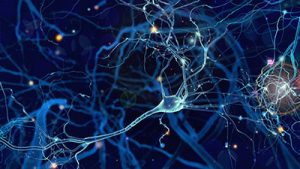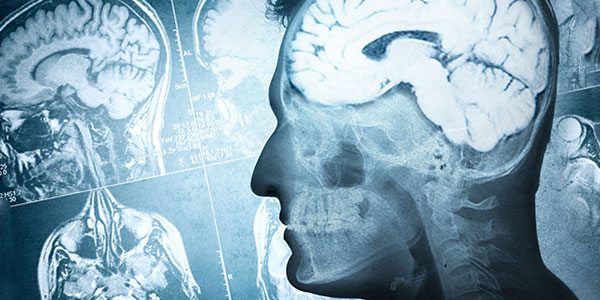The endocrine system is the collection of glands that produce hormones in our body. It plays a key role in regulating metabolism, growth and development, tissue function, sexual function, reproduction, sleep, mood, and more. As we age, the endocrine system changes due to decreased hormone production, and this diminished endocrine function affects both men and women.
Aging naturally affects every part of the body, ranging from cognitive function to the immune system. The endocrine system is no exception. While changes in endocrine function may not be as frequently discussed as the physical side effects of age, it is nonetheless important. This system is responsible for regulating hormones, an essential key to overall health.
A Closer Look at the Endocrine System
The endocrine system refers to the hormone-producing glands located throughout the body. In the brain, there’s the pineal gland, pituitary gland, and hypothalamus. In the neck, the thyroid and parathyroid glands perform crucial functions. Other key parts of this system include the thymus, the adrenals, the pancreas, and the testes/ovaries. All of these parts produce specific hormones, which function as chemical messengers. They relay messages throughout the body, helping to coordinate and direct myriad physical activities.
Age isn’t the only cause of inadequate endocrine health. Various factors, including infections, stress and lifestyle habits, can lead to endocrine dysfunction.
What a Damaged Endocrine System Means

Due to the vital role that hormones play in the body, dysfunction of the endocrine system can alter how the heart beats, how bones and tissues grow, and whether or not various diseases or ailments develop, such as diabetes, thyroid disease, growth disorders, sexual dysfunction, and a host of other hormone-related disorders.
Thus, the reason why it’s important for older adults to maintain a healthy endocrine system. The aging process makes this hard, however, as hormone production naturally alters as adults reach a certain age.
What hormone levels decrease due to the aging process?
Many hormone levels decrease with age to some extent. This is most pronounced with women; as decreased levels of progesterone and estrogen hormones lead to menopause. When production of these hormones slows, it affects nearly every system in the body. The biochemical fluctuations that occur due to estrogen depletion impact the brain, potentially leading to mood swings, depression, anxiety, and memory loss. Estrogen loss also puts women at higher risk for cardiovascular events, leads to the loss of bone density, and decreases skin elasticity.
As men age, their testosterone levels decrease, a phase known as andropause. Unlike the hormonal changes of menopause, this decrease occurs gradually. Nonetheless, decreased testosterone levels affect men, leading to side effects such as muscle atrophy, fatigue, sleep disturbances, and depression.
Two other major hormones naturally decrease with age: growth hormones and melatonin. Depleted growth hormone levels lead to weakened muscles, while a lack of melatonin can impact sleep, as this hormone helps to regulate circadian rhythm.
Hormone Levels Not Impacted by Aging
As men and women age, levels of many important hormones start to dwindle. This isn’t universally true, however, as some hormone levels can remain unaltered and a few hormones actually increase in production with age. Levels of cortisol, insulin, and thyroid hormones generally stay the same. Cortisol, also known as the “stress hormone,” is an essential hormone, responsible for regulating metabolism, assisting memory retention, and controlling blood sugar.
Insulin is a pancreatic hormone that helps to regulate blood sugar levels. Maintaining appropriate insulin levels is important for seniors, as inadequate insulin can lead to type 2 diabetes. In addition to these, another hormone production that is generally not impacted by age is the production of thyroid hormones. Thyroid hormones, like thyroxine, are responsible for bone health, muscle function, digestion, and metabolic rate, and a negative feedback loop ensures the body maintains consistent levels of these essential hormones.
On the other side of the spectrum, hormones that increase production with age include parathyroid hormone, epinephrine, norepinephrine, luteinizing hormone, and follicle-stimulating hormone.
Treatments to Mitigate the Effects of Decreased Hormone Levels
Decreased hormone levels and endocrine dysfunction can negatively impact the health of men and women on a variety of levels. To combat these effects, some people turn to hormone replacement therapy. These therapies are not always beneficial, however, and may in fact pose health risks.
Many women use hormone therapy to treat the symptoms of menopause, such as night sweats and hot flashes. However, studies suggest that focusing on proper supplementation of on an estrogen-rich diet may be a healthy and natural approach for balancing hormones, as estrogen therapy can increase the risk of blood clots, breast cancer, and stroke.
Testosterone therapy is an option for older men with low levels of testosterone. Like estrogen therapy, however, this treatment has several possible risks, including blood clots, mood changes, and urinary tract problems.
Before embarking on hormone therapy, men and women should always consult with a medical professional.





